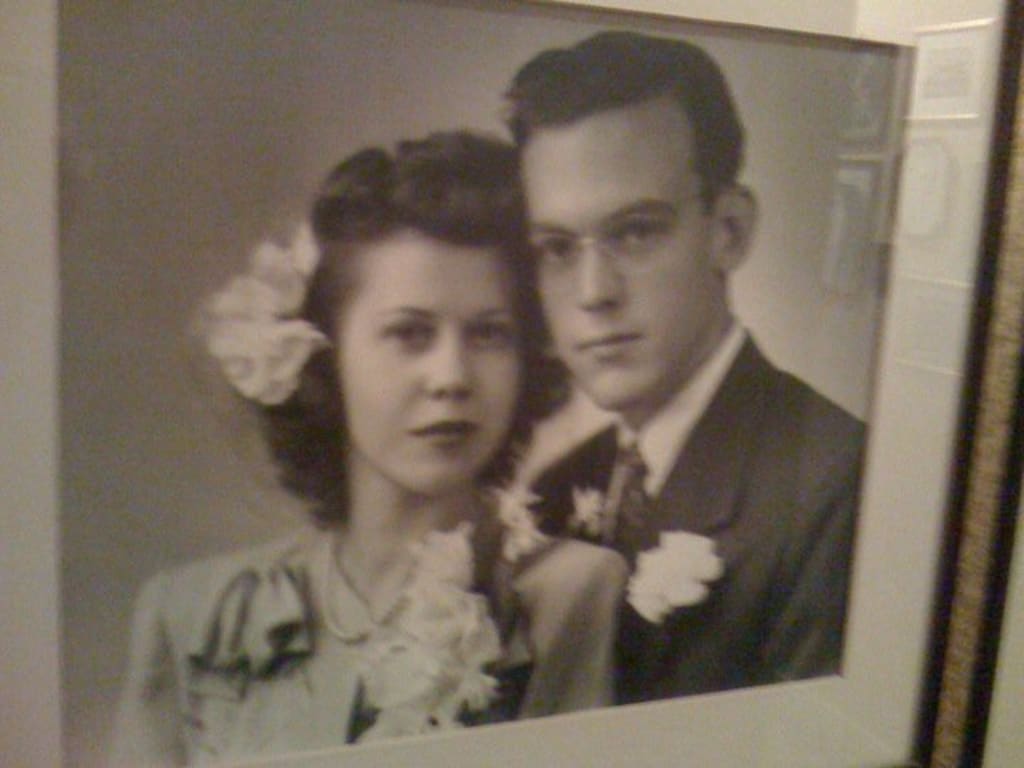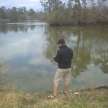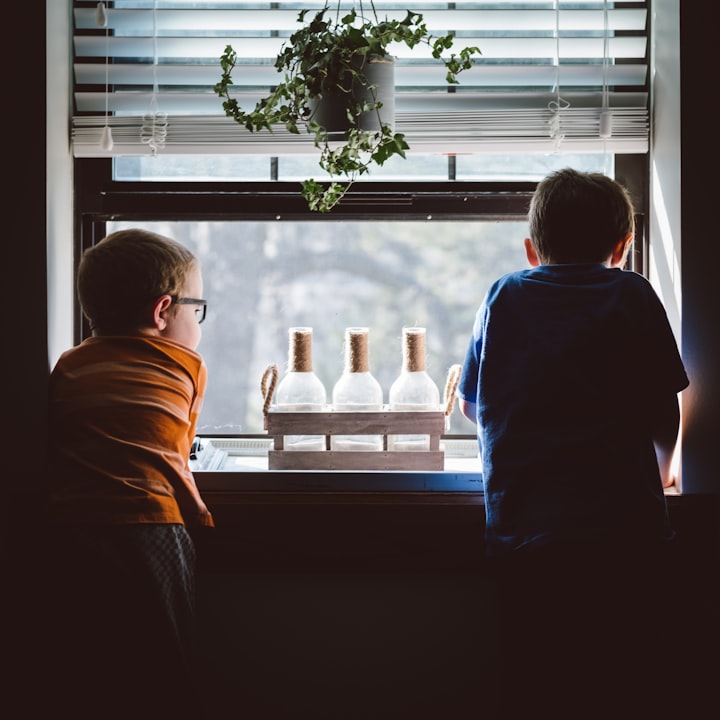Farewell, Dorothy
Mother. Grandmother. Friend.

Back in college when I was a creative writing student, I took a creative non-fiction workshop. I can’t remember the prompt or the assignment, but wrote one of my favorite pieces in that class. I’ve picked it up a few times over the years to reread and reedit. It’s about saying goodbye to grandmother. It was me saying goodbye twenty years later and when I wrote it I realized I was too young to understand when she passed. I am fortunate to have known her for a short time. And I am fortunate to have the biscuit cutter.
We all came from different places, but one common thread tied us together. The Olivers came from Houston, the Joneses and the Goodes came all the way from the suburbs of New Orleans, and we came from the suburbs of Northeast Houston for the annual Thanksgiving gathering. Really the only person we were missing was Aunt Margaret from Shreveport, who was unable to make the trip, as she wanted to stay with her family for the holiday. It was all timed so that everyone would arrive in the late afternoon.
Dad cautiously pulled our white Jeep, loaded down with cargo and passengers, out of the parking lot of Woody’s Smokehouse in Centerville, Texas, back onto I-45 heading north. It would only be another hour or so before we made it to our destination, Groesbeck, a small town in central Texas. As the car moved on, we snacked on Woody’s “world famous” mesquite beef jerky and talked about life, all the while feeling the tension building in the car.
“How is school?” Mom asked my brother and me in the back seat.
“Fine,” we both said in unison. The mood was somber, and as we traveled on, everyone got quieter.
We exited the highway one last time, and our hearts began to race. Texas Highway 164 was what we had come to call “the hill part” of our drive to Groesbeck. The 28-mile stretch meanders through the hills of Limestone County. It had different meanings for all of us. For Mom it was the last leg of a trip back home, for my brother Will and me it was the longest part of the drive to Gramma’s house, and for Dad it was the last stretch of the journey to Oliver Ranch, which had been for the family for generations a place for fishing and a place for wandering and a place for thinking.
Will and I made a game out of who could spot the house the domed roof, that we had come to call the dome home, first. I always lost, because I was too excited. This time though, there was an uneasy feeling in the car. We were all remembering the phone call Mom had gotten from Aunt Marie that past July. We wondered what the house was going to be like, at the same time trying to keep our minds off of it. We watched our miniature dachshund, Kringle, jump around as he looked out the windows trying to soak in the new surroundings that he had already seen countless times before.
We were the first family there. We parked the car in the gravel driveway by the bushes. I got out of the car and saw the house just as I remembered it. Gramma’s Crown Victoria was still parked in the garage, right next to the “FOD,” the old Ford pickup truck with the “R” missing from the tailgate. The shack where Grandpa Rufus had created his sculptures, as a means of relaxation, was in the back yard, adorned with statues. Gramma’s gardening cart, complete with rake, shovel, and hoe, stood in the grass next to the flowerbed as if she had been out working in the garden earlier that day. The only thing missing was the smell of someone cooking in the kitchen and her standing there to greet us as we walked in through the sliding glass door.
Later on, we all jumped in the “FOD” and headed out to the ranch, approximately six or seven miles outside of town, near the old Horn Hill Cemetery, to see how things looked. For me, it remains one of the most peaceful drives I could ever take. I can still drive down that road and feel totally at ease. But on this trip, I don’t think that anybody really enjoyed it as much as they could have.
When we got there, it was business as usual. We inspected the condition of the gates, chains, and locks. We made sure none of the cattle had gotten out onto the road. We checked the water levels on all of the tanks. I remember it being really dry that year. We looked around to see if we could find any more cow skulls to take home or any interesting rocks that we could add to our collections. Will and I always tried to add to our collection of things from the ranch, from cow teeth to old rusted doorknobs to horseshoes.
When we got back to the house, the rest of the family was arriving. Aunt Marie, Uncle Ron, and my cousin Russell lived across the street, and were just walking over. Uncle Rufus, Aunt Kathleen, and my cousins Walker and Matt had arrived from Houston right before we got back and the rest were not far behind. We all greeted each other, shook hands and hugged, and turned around to see the Joneses and the Goodes pulling into the driveway. My uncles Ken and Emmett, my aunts Barbara, and Louise, and my cousins Katie, Ken, Stephen, whom I was the most excited to see because he was closest to my age, little Jessica, all got out of their respective cars. As we watched each family arrive, we saw they had the same uneasiness we had experienced on the drive up.
We went to our designated sleeping quarters for the weekend to drop off our bags and other personal belongings. We all congregated in the kitchen to catch up on each other’s lives. Though separated by great distances, we had all gone through something together. We had lost something very near, and more important, very dear to our hearts. We all knew it, but nobody wanted to say anything, and nobody dared speak of it.
Finally someone did.
“I miss her.”
And we all agreed.
Family gatherings like that had always centered around her. She was the matriarch of the family. As we sat there, I kept mostly quiet, sat and thought and took it all in. As I looked around I saw how much she affected us all. For the first time, I noticed how much she looked like my mom, and how much like her my mom is.
I remembered sitting at that very table, with the very same people, as Gramma made a lemon meringue pie. She was standing by the sink, whipping the meringue in a large ceramic mixing bowl.
“Look,” she said all of a sudden. We turned just in time to watch her tip the bowl upside-down over her head. We let out a collective gasp, thinking it was going to fall out on top of her. To our surprise, it stayed airborne inside of the bowl over her head, as she continued to whip the meringue. “That’s how you know it’s ready,” she said. I never forgot that.
Her name was Dorothy Oliver. For some she was a mother, others a sister, an in-law, an aunt, and to the rest, a grandmother, but to everybody she was a best friend. “Gramma Dorothy,” we called her. We had all received the same call on the same night, in July 1990. Aunt Marie told everyone she had gone over to check on her and had found her on the bathroom floor.
*****
That night, a storm rolled through and knocked out the power in the neighborhood. We woke up and panic ensued as we realized that we could not cook the quintessential Thanksgiving meal. The anxiety was especially strong in Mom and Aunt Kathleen, who had volunteered themselves to cook the meal, committing themselves to months of studying boxes of recipe cards, trying to decide on the perfect dishes to make for the family, as they without question had to live up to the meal Gramma created every year. It wasn’t a total loss, as it was tradition for the relatives from New Orleans to bring along family favorites, such as shrimp and crab stuffed mirliton and oyster dressing, not to mention all of the pies and other desserts supplied by each family member that year. The mirliton and oyster dressing were being taken out of the refrigerator when the power turned on, shaking the house back to life, everything simultaneously switching back on.
All of the cooks, who in our family includes everybody, jumped into action. The meal had to be prepared in record time this year, or hungry family members would revolt.
Only hours later, which seemed like an eternity to us all, the meal was ready. We set the dining room table up buffet style, with another table next to it to accommodate the collection of desserts we had assembled. The assortment of food was always spectacular. The family favorites included roast turkey, giblet gravy, cornbread dressing, oyster dressing, mirliton, assorted cranberry sauces including the canned variety, which Will, in his childhood innocence, had dubbed “cranberry discs,” sweet potatoes, green bean casserole, pickled beets, yeast rolls with Gramma’s homemade jellies and preserves and, of course, a Southern relish tray.
We all gathered in the dining room, behind the table as, on that day of the year especially, the food was as much a part of the family as any one of us was. Uncle Rufus had his camera on the tripod across the table from us.
“One, two, three,” he counted, racing to his place among the gathered family, before the camera flashed and he had to start all over again.
Everyone grabbed a plate and went around the table trying to get a little piece of everything on the plate, before there was no more room. We all found our place at one of the many card tables set up in the living room, set our plates down, and recongregated around the dining room table for a prayer. It was, and still is, our tradition that Uncle Rufus says the prayer for the family. He asked us all to hold hands and bow our heads. Grandpa Rufus had a special toast we always say at family gatherings,
“salud, amor, dinero, y el tiempo para gozarlos”.
After the prayer, we all found our seats and sat down for what the family has always called “The Olympics of Eating.” The table was our playing field. When it came time for Thanksgiving, nobody could out eat us. There was no way that anybody would go without seconds and sometimes thirds, of everything, including desert.
*****
Some years, there would be those of us who could no longer walk after the meal. The most common injury was overeating. Grandpa Rufus used to call this “suffering from comfort.” Those who were able would help with the cleaning up process, while stepping over those of us who could not. In the kitchen, began the process of washing each and every dish by hand. We set up an assembly line: scrape, scrub, rinse, dry, put away. But, there were still the ones lying on the floor in the living room groaning, belts undone and pants unbuttoned. There was no way of getting up for another hour at least. After the “comfort” passed, we would go back into the fridge to make a sandwich, and the three days of turkey would begin.
The day following Thanksgiving always included going out to the ranch as a family. We would spend half of the day walking around and collecting memories, and remembering old ones, trying to burn off what we had eaten the day before, only to go back to the house for another feast that night.
Everybody had a favorite activity, whether it was setting up a shooting gallery in the barn or throwing rocks down the well or just standing back to watch everybody enjoy the unblemished surroundings. But for each of us, there was a certain smell. For me, it remains the mixture of dust, cactus, mesquite, manure, and fresh air that I cannot describe but still love to this day. The children could always find untold treasures among the debris of the house that had once stood next to the barn. A bundle of wire could become a ball to throw around or there would be the rusted old doorknob to take home and display on the shelf, next to the mesquite branch with the six-inch thorns on it from the year before.
After the ranch, we would go on to the next family tradition, which was to make a stop at old Fort Parker. The children were taken there every year, to learn about the Indians and about Cynthia Ann Parker, a young girl who was captured by the Comanches who would become the mother of Quanah Parker, the last Comanche chief, but we only wanted to go there so we could play cowboys and Indians. I remember imagining what life was like for the Indians. We would climb up on the walls and pretend the cowboys were coming to take us over, and we were shooting our arrows to hold them off as long as possible.
*****
Dinner consisted entirely of leftover turkey, dressing, salad, and cranberry sauce, strategically shoved between two or three or four slices of bread, with a side dish of two or three or four slices of pie, complete with two or three or four glasses of milk. We all sat around and shared our personal favorite stories of Gramma Dorothy. We agreed that our favorite memory was working with Dorothy in her kitchen at one point or another. She could never just cook with you and show you what she was doing. Instead she would always teach you something about life, or maybe even something completely unrelated at the same time.
I used to love waking up early in the morning with Gramma, before anyone else, and going in to the kitchen with her to make breakfast. We always made the same thing: biscuits, eggs, and sausage. She would show me what she was doing and let me take a turn. I can still see her favorite biscuit cutter, a stainless-steel disc with a plastic handle, sitting on the wax paper in a pile of flour.
After dinner, the family had to sit down and discuss what was to be done with the house and the ranch. The family arrived at the heartbreaking decision to sell the house, splitting up all of the furniture as we saw fit. Everyone got to take home a piece of Gramma’s house over the next few months.
That weekend, on the way out of Groesbeck, we all stopped at Grandpa Rufus and Gramma Dorothy’s gravesite. It seemed like just yesterday we had been there. Nobody said much; nobody had to. We all knew how everyone felt. We all stayed to pay our last respects to the fallen Olivers, until one by one the families left and drove home.
For the next few years we fought to start a new Thanksgiving tradition. We wanted to continue honoring Gramma with our Thanksgiving extravaganza, even after she was gone. We arrived at a decision that seemed to fit for everyone. We had celebrated her 70th birthday at a beach house in Galveston, Texas, the year before she died. Everyone agreed that it would be a great way to honor Dorothy, and to start a new family tradition. She arrived in spirit, through her brother Emmett, her children, and her grandchildren, and through all of the stories about her we brought with us every year. We still prepared every meal to Dorothy Oliver standards, as if she was still there cooking them herself.
That new tradition lasted for a few years, until it eventually became more and more difficult to get the entire family together. Simply put, Dorothy was the glue holding the family together. Despite us not being able to get everybody together, Dorothy still lives on at each gathering. Her recipes are still used and her stories are told and her memory is in our hearts, as well as on our plates.
This article originally appeared on my blog, Me, Myself, and Cuisine






Comments
There are no comments for this story
Be the first to respond and start the conversation.